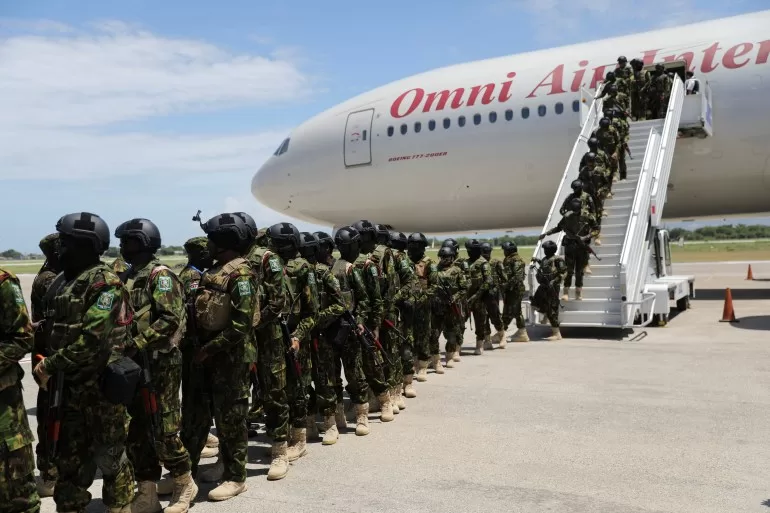UN rights chief calls for crackdown on arms trafficking that fuels ‘criminality’ and widens humanitarian crisis.
At least 3,661 people have been killed in Haiti in the first half of this year amid the “senseless” gang violence that has engulfed the country, according to the United Nations.
The UN Office of the High Commissioner for Human Rights (OHCHR) said on Friday that the death toll between January and June – which included 100 children – showed that last year’s “high levels of violence” had been maintained.
“No more lives should be lost to this senseless criminality,” said UN rights chief Volker Turk in a statement.
Haiti was already reeling from years of unrest as powerful armed groups – often with ties to the country’s political and business leaders – vied for influence and control of territory.
The situation worsened dramatically at the end of February, when the gangs launched attacks on prisons and other state institutions across the capital, Port-au-Prince.
The UN report documented “extremely serious patterns of human rights violations and abuses taking place” in Port-au-Prince and the Artibonite Department north of the capital.
It also tracked growing violence in the southern part of the West Department, where the capital is located, an area of the country that had so far been largely unaffected.
According to the report, “gangs have continued to use sexual violence to punish, spread fear and subjugate populations”.
Violence in the country is fuelled by arms trafficking, primarily from the United States, but also from the Dominican Republic and Jamaica.
OHCHR said poorly monitored airspaces, coastlines and porous borders were allowing gangs to obtain high-calibre weapons, drones, boats and “a seemingly endless supply of bullets”.
Turk urged the international community to implement a global arms embargo, a travel ban, and an asset freeze programme imposed by the UN Security Council.
Peacekeeping
The surge in violence this year prompted the resignation of Haiti’s unelected prime minister, the creation of the transitional presidential council, and the deployment of a UN-backed, Kenya-led multinational force called the Multinational Security Support Mission (MSS).
About 10 countries have pledged more than 3,100 troops to the MSS, but only 430 of these have deployed so far, said OHCHR.

The report was published days before the MSS’s one-year mandate to support Haiti expires, with the UN Security Council scheduled to vote on September 30 on whether to renew it.
Haiti has asked the UN to consider turning it into a formal peacekeeping mission to secure stable funds and capacity.
Turk said it was clear the mission needed “adequate and sufficient equipment and personnel to counter the criminal gangs effectively and sustainably, and stop them spreading further and wreaking havoc on people’s lives”.
On Wednesday, Haiti’s interim prime minister, Garry Conille, called for international support on the sidelines of the UN General Assembly in New York.
“We are nowhere near winning this, and the simple reality is that we won’t without your help,” he said.
The number of people internally displaced by the violence has almost doubled in the last six months to more than 700,000, while some 1.6 million people are estimated to be facing emergency food insecurity.
